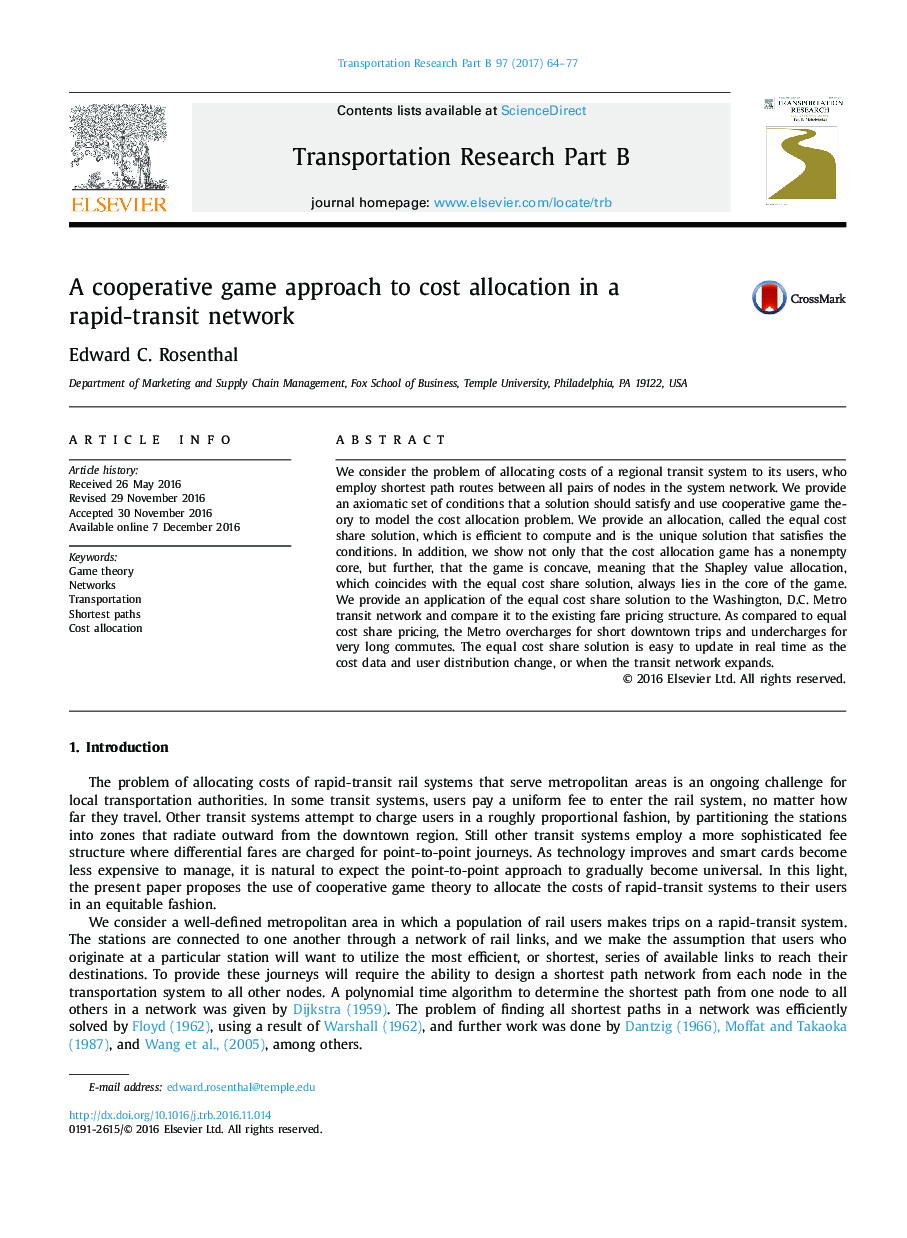| Article ID | Journal | Published Year | Pages | File Type |
|---|---|---|---|---|
| 5127076 | Transportation Research Part B: Methodological | 2017 | 14 Pages |
â¢We apply cooperative game theory to cost allocation in rapid transit networks.â¢We provide a reasonable set of conditions that an equitable solution should satisfy.â¢We propose an equal cost sharing solution that is efficiently computed.â¢The equal cost sharing solution is the unique solution to satisfy the conditions.â¢We apply equal cost pricing to the Washington, D.C. Metro system.
We consider the problem of allocating costs of a regional transit system to its users, who employ shortest path routes between all pairs of nodes in the system network. We provide an axiomatic set of conditions that a solution should satisfy and use cooperative game theory to model the cost allocation problem. We provide an allocation, called the equal cost share solution, which is efficient to compute and is the unique solution that satisfies the conditions. In addition, we show not only that the cost allocation game has a nonempty core, but further, that the game is concave, meaning that the Shapley value allocation, which coincides with the equal cost share solution, always lies in the core of the game. We provide an application of the equal cost share solution to the Washington, D.C. Metro transit network and compare it to the existing fare pricing structure. As compared to equal cost share pricing, the Metro overcharges for short downtown trips and undercharges for very long commutes. The equal cost share solution is easy to update in real time as the cost data and user distribution change, or when the transit network expands.
